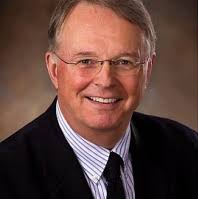This webinar will give you all the tools you need to start your Exit Interview program or improve the one you have. It isn't rocket science but there are best practices and considerations for doing them well. Our intent is to get you up to speed as quickly and effectively as possible.
WHY SHOULD YOU ATTEND?
- Learn the 7 steps for implementing a program
- Understand the value of developing a listening culture
- Receive 13 reasons for implementing webinars
- Understand the difference between the employee's perspective and the employer's perspective
- Receive the pros and cons of face-to-face, phone, questionnaire, and consultant interviews
- Learn who should conduct interviews and when they should be held
- Learn the value of 2nd interviews
- Receive suggestions for making the employee comfortable and getting honest answers
- State the ins and outs of questionnaire administration
- Answer how to handle involuntary terminations
- Learn when offering confidentiality can be a problem
- 15+ considerations in conducting the actual interview
- Keys to effective listening
- Importance of documentation for legal protection
- Learn considerations for analyzing and reporting information
- Learn the importance of taking action and getting the most out of the interviews
AREA COVERED
- A copy of the PowerPoint slide deck
- 179 sample interview questions in 11 different areas
- A sample Exit Interview Policy for you to personalize
- A sample Exit Questionnaire
- Live question and answer period
WHO WILL BENEFIT?
- HR Directors
- Business Owners and Senior Leaders
- HR Generalists and Interviewers
- Directors, Managers, and Supervisors
- Anyone wanting to Develop a Listening Culture
- Learn the 7 steps for implementing a program
- Understand the value of developing a listening culture
- Receive 13 reasons for implementing webinars
- Understand the difference between the employee's perspective and the employer's perspective
- Receive the pros and cons of face-to-face, phone, questionnaire, and consultant interviews
- Learn who should conduct interviews and when they should be held
- Learn the value of 2nd interviews
- Receive suggestions for making the employee comfortable and getting honest answers
- State the ins and outs of questionnaire administration
- Answer how to handle involuntary terminations
- Learn when offering confidentiality can be a problem
- 15+ considerations in conducting the actual interview
- Keys to effective listening
- Importance of documentation for legal protection
- Learn considerations for analyzing and reporting information
- Learn the importance of taking action and getting the most out of the interviews
- A copy of the PowerPoint slide deck
- 179 sample interview questions in 11 different areas
- A sample Exit Interview Policy for you to personalize
- A sample Exit Questionnaire
- Live question and answer period
- HR Directors
- Business Owners and Senior Leaders
- HR Generalists and Interviewers
- Directors, Managers, and Supervisors
- Anyone wanting to Develop a Listening Culture

